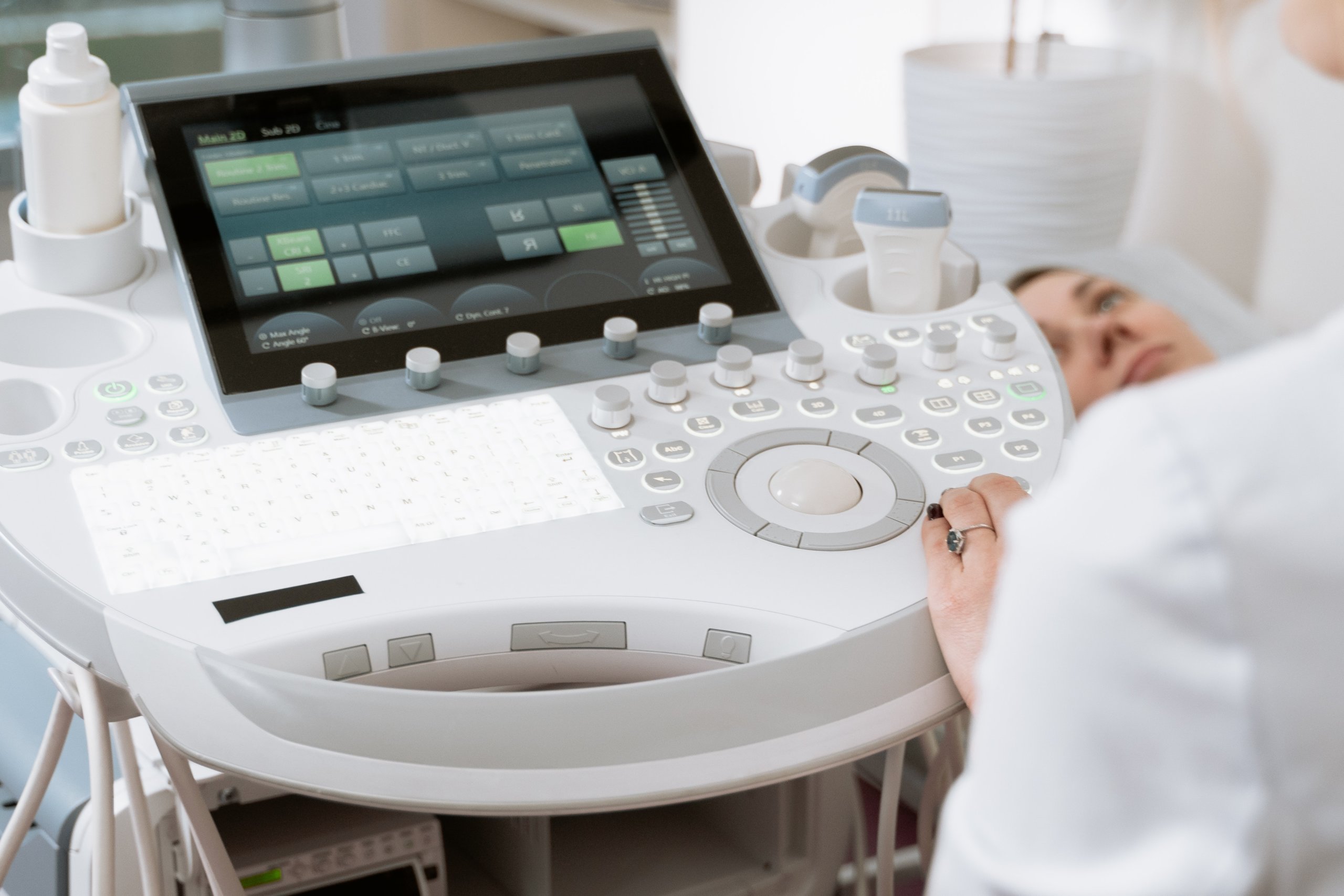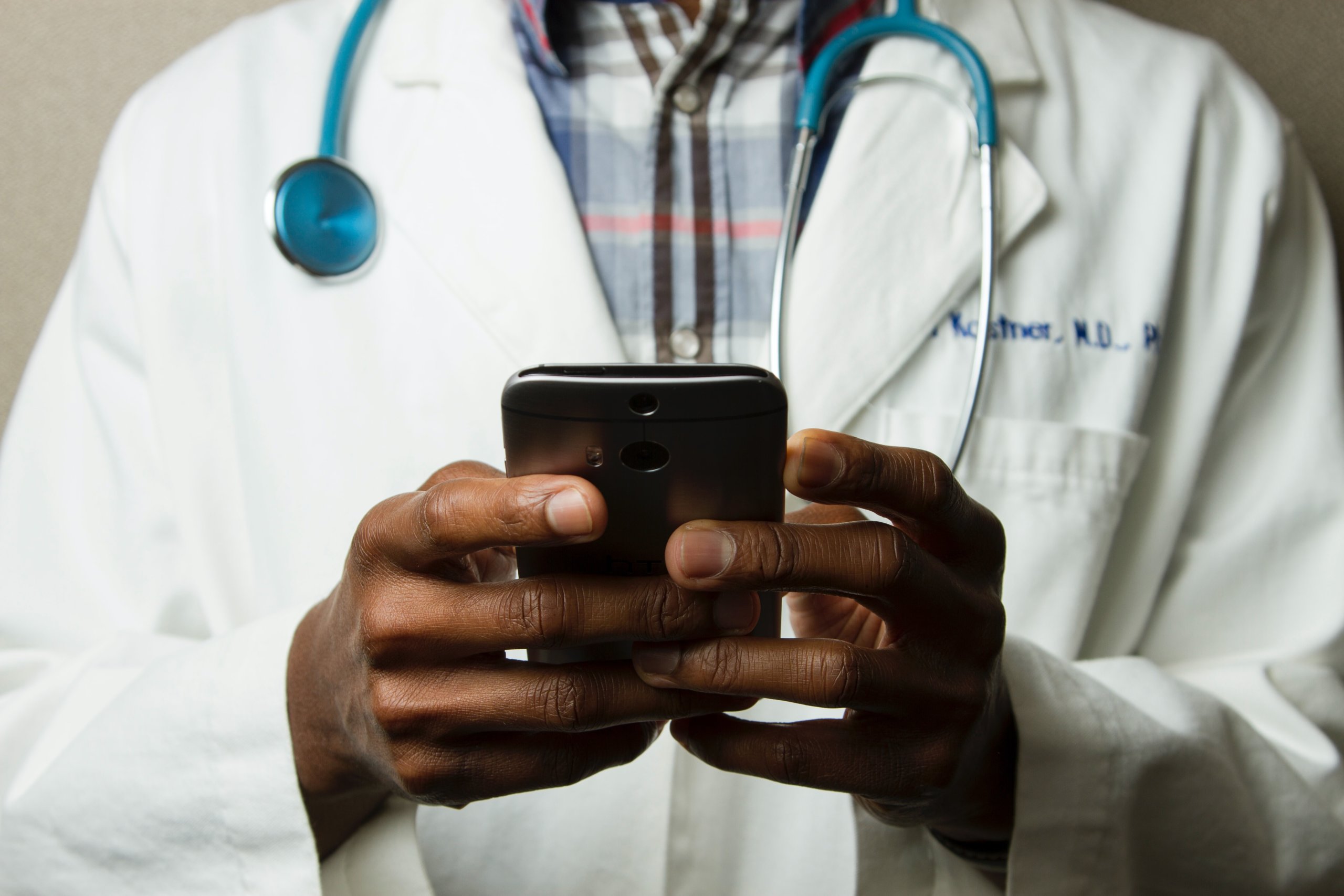
Whether it’s less invasive procedures, faster test results, or safer x-ray methods, new technology has always been one of the main catalysts behind better healthcare for all. So it’s no surprise that staying up-to-date on the latest medical innovations is imperative for medical institutions.
Unfortunately, only 7% of pharmaceutical and healthcare companies claim to have gone “digital”, whereas other industries report a doubled adoption rate of 15%. The healthcare industry cannot afford to not keep up with technology, and, luckily, it seems that industry stakeholders are starting to realize this — national spending on health is forecasted to grow to $5.7 trillion by 2026.

Making sense of all the medical innovations coming down the pipeline can quickly begin to feel daunting and overwhelming. To help you gain some clarity, we’ve put together a multi-part series about healthcare’s digital transformation. It will cover many new medical applications in development that involve emerging technologies such as artificial intelligence (AI), the Internet of Things (IoT), and more.
For our first entry, we’ll delve into on-demand healthcare systems and the impact that virtual reality (VR) is having on the field.
Efficient On-Demand Care
Integrating new paradigms into your healthcare operation’s fold can drastically improve the overall experience for patients, payers, and providers. Hospitals and clinics usually benefit from efficient physician operations, better patient outcomes, less human-caused errors, and lower costs overall.
On-demand healthcare is one such model that’s seeing a surge in popularity thanks to technology. And, while seen as radical by some, it can create a higher-quality medical experience. Patients would no longer have to preventatively set appointments; they could be seen as soon as their tooth becomes painful, and they’d no longer have to wait months to get a check-up because of the doctor’s busy schedule.

Mobile phones are allowing more and more patients to find on-demand care. And it’s a trend that shows no signs of slowing down. For marketing and content, mobile will be a priority for brands to reach and connect with patients; as of 2018, mobile accounts for 52% of all Internet browsing worldwide. By the end of 2019, there will be more than five billion mobile users globally, up from 2.7 billion global mobile users right now.
But it isn’t just marketing and browsing that makes mobile technology an integral part of healthcare’s future. According to a study by DMN3, mobile consumers are going online to get a variety of information. 47% are researching doctors; 38% are finding information about hospitals, clinics, and medical facilities; and a whopping 77% are using their mobile phone to book medical appointments.
New York City-based company Nomad Health is working to help doctors offer their expertise for short-term needs. When clients need on-demand healthcare, a doctor with the right talent, schedule, and expertise will be matched to provide care. No hospital or external managing body is needed; doctors can allocate their free time as they please.
The New Virtual Reality
Unlike on-demand healthcare, VR provides a massive improvement for physicians and other professionals; using VR, doctors can continue their education and upskill their expertise by training with VR. Asking for help with how to perform a new or rare procedure doesn’t have to involve much more than a VR session with an experienced surgeon. And residents can practice their specialty without using a live patient.
Surgeons who trained with VR performed surgeries 29% faster, and they made 7 times fewer errors than their non-VR-trained peers.
For patients, VR provides a plethora of applications. Users can follow the VR’s direction to exercise more to meet the required lifestyle changes. Children with autism and social anxiety could get more comfortable with the world and the doctor’s office before venturing outside.
VR is even helping patients deal with chronic pain issues; 50 million U.S. adults had chronic pain in 2016. And with the U.S. opioid crisis’s costs reaching almost $80 billion a year, any new and non-invasive methods to improve pain are welcome. VR is safer, and it can be more efficient for many patients who suffer from PTSD, stroke, anxiety, chronic pain, migraines, and more. In fact, VR visualizations have been shown to reduce post-surgical wound pain by 24% in patients.
VR is being used with pregnant women in labor to reduce the pain of childbirth. In 2017, burn victims were given VR games to take their minds off of their wounds when bandages were being changed.
In a 2017 study of 120 patients at Cedars-Sinai Medical Center, half of the patients were given a VR headset with 21 immersive experiences, while the other half watched relaxing programs on TV (like yoga, meditation, and poetry readings). Patients with the VR sets experienced the highest pain relief, and those with severe pain issues benefited from the biggest decrease in pain.
Still not convinced? The global AR (augmented reality) and VR market for healthcare is forecasted to reach $5.1 billion by 2025. VR technology is one that you should prioritize as an integral part of your healthcare business’s technology transformation.
Health For Everyone
Keeping healthcare accessible as costs continue to rise is going to be a major challenge for the healthcare industry. Introducing better technology like VR and paradigms like on-demand care can improve the medical experience for all stakeholders involved.
The healthcare industry will soon be pivoting from in-person-focused appointments to a mobile-first approach; you can’t afford to get left behind! Stay tuned for the next part of the series, where we’ll go over big data and how access to medical data is changing the industry.





